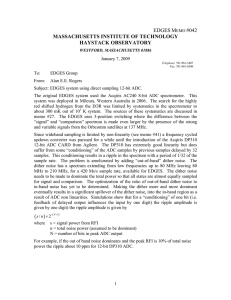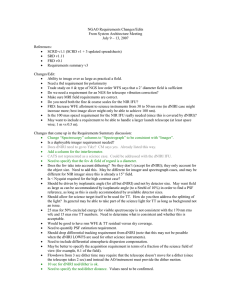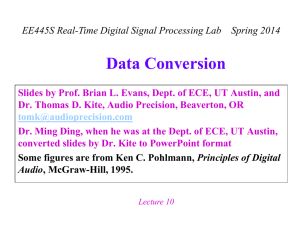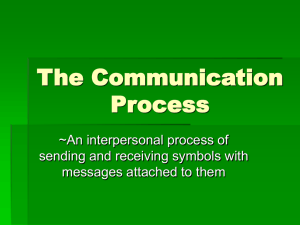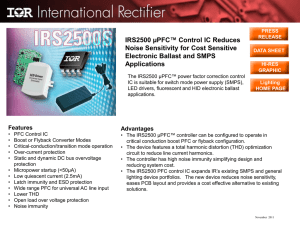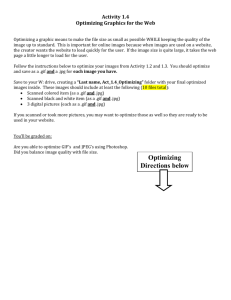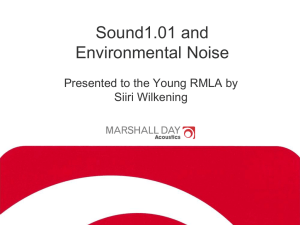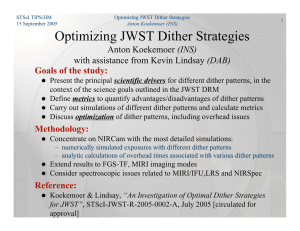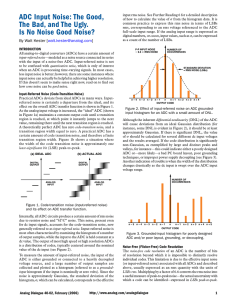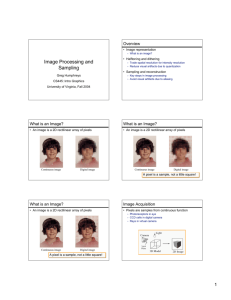Dither & Noise Shaping: Digital Audio Explained
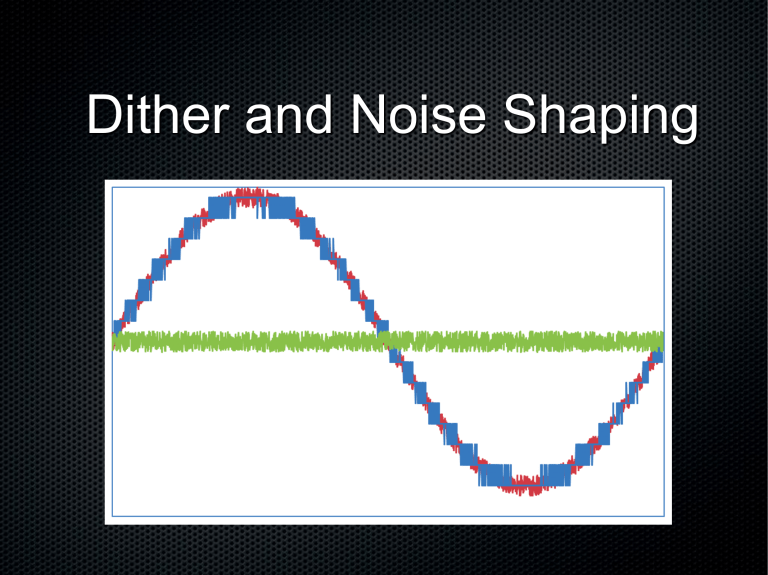
Dither and Noise Shaping
When do we use DITHER?
•
Most commonly when Converting
DIGITAL AUDIO BITRATES
•
Ex: 24bit 16bit for CD
What is DITHER?
It is actually adding NOISE to an audio signal.
We make a trade:
A little lowlevel hiss is added BUT…
There is a big reduction in
DISTORTION.
16-Bit CD Audio
•
Remember: 16-bit CD has a 96dB MAX dynamic rang
•
BUT we don’t ALWAYS listen to our music at its full dynamic range
More on BITS…
•
We are using less BITS when volume level is not FULL
•
QUIETER digital audio has more
DISTORTION because it is utilizing less of those BITS!
Here you can see the low bitrate
TRY THIS ANALOGY:
Spread your fingers and hold them up a few inches in front of one eye, and close the other. Try to read this text. Your fingers will certainly block portions of the text (the smaller the text, the more you'll be missing), making reading difficult.
Wag your hand back and forth (to and fro!) quickly. You'll be able to read all of the text easily. You'll see the blur of your hand in front of the text, but definitely an improvement over what we had before.
The blur is analogous to the noise we add in dithering. We trade off a little added noise for a much better picture of what's underneath.
The LSB. What is that?
•
LSB stands for the LEAST
SIGNIFICANT BIT
•
This is where the noise is added
•
It spreads individual ERRORS into NOISE
In other words…
•
Creating NOISE actually helps us hear LOW LEVEL SIGNAL
BETTER!
So when does dither happen?
•
Converting Sample Rates
•
Mixdown of a digital project
•
Normalizing: What is that?
Your DAW
•
The good news is that your software usually does this automatically
•
Bitrate conversion often allows for the option
The Power of our BRAIN
•
Hearing through dither is like picking out a voice in a crowded room
•
Our brain can separate low level sound from the noise created by dither
•
In Short…
Dither is INTENTIONAL Low-Level
NOISE
•
Is used in DIGITAL SYSTEMS
•
It’s better than DISTORTION
Finally… Noise Shaping
•
This uses DITHER to make it SEEM like there is a lower NOISE FLOOR
•
This also uses the ‘Fletcher-munson’ curve: It considers how we HEAR
•
Again, fooling our brain into hearing something else
Listening examples (bottom of page): http://www.hydrogenaudio.org/musepack/klemm/www
.personal.uni-jena.de/~pfk/mpp/dither.html
